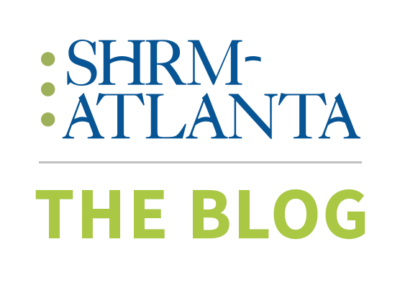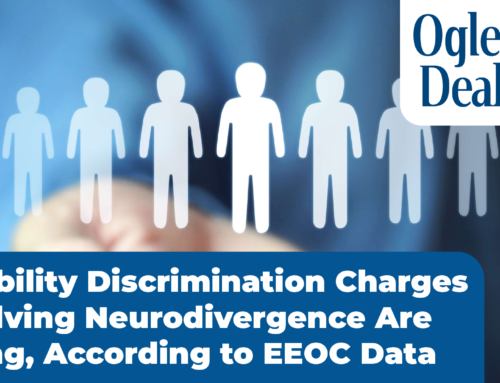By Lolita Burgess
Artificial intelligence (AI) is revolutionizing recruitment by streamlining processes, enhancing decision making, and improving efficiency. However, despite these advancements, there are concerns about algorithmic bias and fairness, particularly regarding diversity, equity, and inclusion (DEI) initiatives.
AI recruitment technologies, when not designed or monitored carefully, risk perpetuating or amplifying existing biases. To address these issues, embedding fairness and DEI frameworks into AI systems is essential.
Current Use of AI in Recruitment
AI recruitment technologies are widely used in the information technology industry to expedite hiring processes. AI-powered tools can filter resumes, vet qualified candidates, and even conduct video interviews.
A recent study in the Journal of Human Resource and Sustainability Studies found that some HR professionals view AI as accurate and trustworthy, achieving up to 70% accuracy in identifying qualified candidates.
However, stakeholders often raise concerns about the transparency and fairness of these systems. AI’s reliance on historical data can lead to biased outcomes if the data contains discriminatory patterns, as noted in the journal Philosophy & Technology in 2022.
Embedding DEI Frameworks into AI Recruitment Systems
DEI frameworks are crucial in addressing inherent biases in recruitment. These frameworks ensure that all demographic groups are fairly represented in hiring decisions.
In their 2023 article in American Psychologist, Richard Landers and Tara Behrend recommend integrating DEI frameworks into AI systems by performing bias audits and ensuring transparency in the AI decision-making process.
Bias auditing evaluates AI algorithms to detect and correct any discriminatory patterns, aligning AI systems with DEI goals. Researchers Anna Lena Hunkenschroer and Alexander Kriebitz agree, suggesting continuous monitoring and auditing as an ethical practice to reduce discrimination.
Incorporating fairness into AI systems can be achieved through pre-processing, in-processing, and post-processing techniques, as proposed by Yuqing Zhao et al. in 2021 during the Pacific Asia Conference on Information Systems.
Pre-processing focuses on modifying data before it enters AI systems, while in-processing embeds fairness into the decision-making algorithms. Post-processing ensures fairness by adjusting AI outputs after the decision-making process. These methods, when combined with human oversight, reduce bias and promote equitable recruitment processes.
Continuous Monitoring and Human Oversight
Landers and Behrend argue that human oversight is essential to AI systems’ success in promoting DEI. Regular monitoring and auditing of AI algorithms help to identify and correct biases, ensuring that AI systems align with organizational goals regarding fair hiring practices. Furthermore, organizations must revise policies and refine AI recruitment systems to reflect evolving DEI frameworks.
Human oversight also ensures accountability, as suggested by findings from a 2023 study for the Association for Computing Machinery. Incorporating Explainable AI (XAI) systems, which provide transparency in AI decision making, is another way organizations can build trust and maintain ethical standards in recruitment. XAI allows end-users to understand AI’s thought process, ensuring decisions meet fairness and regulatory standards.
Recommendations for HR Professionals
To effectively leverage AI recruitment technologies while promoting DEI, HR professionals should consider the following:
- Perform Regular Bias Audits: Conduct ongoing audits of AI algorithms to identify and eliminate bias. Bias auditing ensures AI systems make decisions aligned with DEI principles.
- Embed DEI Frameworks: Integrate fairness into AI recruitment systems by applying pre-processing, in-processing, and post-processing techniques. These methods ensure that the data entering AI systems and the decisions made are fair and unbiased.
- Ensure Human Oversight: Regular human intervention is essential in preventing AI systems from perpetuating biases. Human oversight helps to maintain accountability and transparency in the recruitment process
- Adopt Explainable AI (XAI): Use XAI to explain AI decisions to all stakeholders clearly. This increases trust in AI systems and ensures that decisions meet fairness and compliance standards.
AI recruitment technologies have the potential to improve DEI outcomes by enhancing fairness and transparency in hiring decisions. However, without embedding fairness principles and continuous monitoring, AI can perpetuate existing biases.
By integrating DEI frameworks, performing bias audits, and ensuring human oversight, HR professionals can create a more inclusive and fair recruitment process. This approach not only promotes organizational DEI goals but also builds trust among applicants, employees, and stakeholders.
Lolita “LJ” Burgess, JM, MBA, SHRM-CP, is a doctoral student at Franklin University and leads Artifex HR Intel LLC. ORCID ID: 0009-0004-7415-1685
References
- Fabris, A. M., Dennis, M. J., Baranowska, N., et al. (2024). Fairness and bias in algorithmic hiring: A multidisciplinary survey. Association for Computing Machinery.
- Landers, R. N., & Behrend, T. S. (2023). Auditing the AI auditors: A framework for evaluating fairness and bias in high stakes AI predictive models. American Psychologist, 78(1), 36–49.
- Zhao, Y., Zhang, X., Tang, X., et al. (2021). Embedding fairness into AI-based talent recruitment systems: The perspective of environment cycle and knowledge cycle. PACIS 2021 Proceedings.




